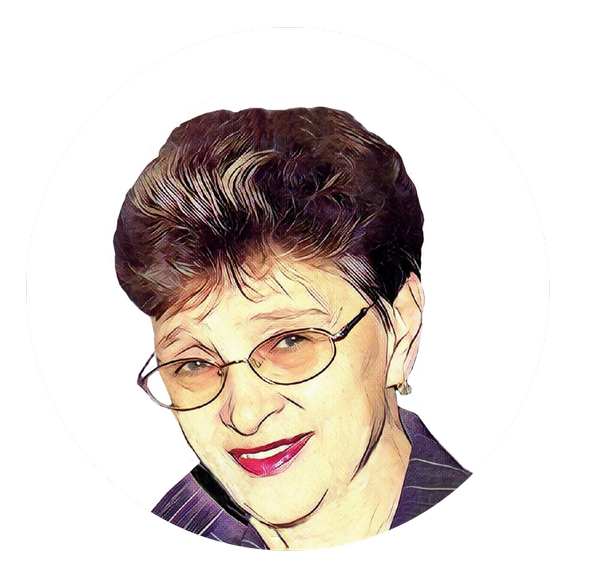



ORCID: 0000-0001-8772-4631
Scopus Author ID: 6602286116
RSCI Author ID: 623763
Advisor to the Rector, Head of the Department of Public Health, Healthcare and Healthcare Economics, Faculty of Pediatrics, Pirogov Russian National Research Medical University (Moscow, Russia).
Corr. member of RAS, DSc (medicine), professor
Areas of expertise:
Health of different age, sex and social groups, impact of various factors on health, positive and negative impact of lifestyle on health, technologies for workflow management in healthcare, improvement of medical care quality; assessment of medical institutions performance, undergraduate and postgraduate medical training, development of professional and educational standards.
International Recognition Award of United Nations European A&P Committee
Diploma and Badge for Excellence in Healthcare of the Ministry of Health of the Russian Federation (2014)
Letter of Appreciation from the Head of the Russian Imperial House, the Grand Duchess Maria Vladimirovna for exemplary serviceto the Motherland, outstanding educational efforts and significant personal contribution to the shaping of patriotic values (2015)
Moscow City Government Letter of Gratitude for active participation in the project “Become a doctor with EMIAS” (2015)
Certificate of Merit from the Presidium of the Higher Attestation Commission of the Ministry of Education and Science of the Russian Federation for attestation of academic and teaching personnel (2016)
ABOUT SCIENCE:
When I was a student and a member of various student groups at the departments of surgery and pediatrics, I noticed that teachers from different departments suggested slightly different treatment regimens and diagnostic techniques for the same pathology. As a rule, you prefer a technique proposed by a teacher who you like best and who you trust. At the same time, when I was a 5-year student at the Department of Public Hygiene and Healthcare Management (now it is the Department of Public Health and Healthcare), I learned to analyze experimental data using various statistical methods. Maths teaches us logic (it was one of my favorite subjects at school). Teachers who taught me to apply mathematical methods of statistics helped me understand the principles of evidence-based medicine and showed the importance of providing good arguments to justify the choice of a diagnostic technique, treatment regimen or prevention measures; I also learned to analyze obtained results and draw conclusions. When I was in my 3rd year, I got a job; by year 6 I had already been working as a primary care pediatrician; however, my job never interfered with my study, and I graduated with distinction. I noticed that the health of my little patients was largely affected by various social and hygiene factors, including mother’s behavior and age at the time the baby was born, her job environment, bad habits in the family, etc. I successfully applied my knowledge to evaluate the health of different population groups and to determine the role of various factors that affect our health.
Clinical departments usually focus on diagnostic and treatment techniques. Of course, those are very important, but I do not think that when we wake up in the morning, we immediately start thinking of how to stay strong, healthy and resilient, enjoy life and be active. Teachers from my department paid particular attention to the role of medical institutions in disease prevention. I liked this idea; besides as a pediatrician I found it crucial for the healthy development of a child.
After I received my diploma, I decided to continue my education at the same department, joined first a residency program and then a PhD program in social hygiene and healthcare management (now referred to as public health and healthcare). For my thesis, I studied the health of young children and preschoolers and the impact of social and hygiene factors on it. I discovered a number of negative and positive health factors and later used the obtained results to develop a project aimed to improve children’s health. After my project was implemented, we observed decreased morbidity and improved health in children. The analysis of medical and economic aspects of the study results demonstrated high efficiency and a positive effect of promoting healthy lifestyle and medical awareness on children’s health.
I hope that all young researchers will find their way in life and be settled, be successful in their professional carrier and scientific work, start a family and have children. Whatever you do, enjoy it. This is the only way to succeed. If you want to go abroad, go, but remember that you can get good education and adequate experience here, in Russia, too. Although my students who have been abroad do not have a unanimous opinion on this matter, I noticed that those who continued their education in Russia became more successful.
Compassion, empathy and kindness are essential for a doctor. A scientist must be organized, composed, able to analyze the results he obtains, persistent and honest. At the same time, I am sure that all of the above qualities are equally important for everyone, be it a doctor or a scientist.
Significant publications in last 5 years